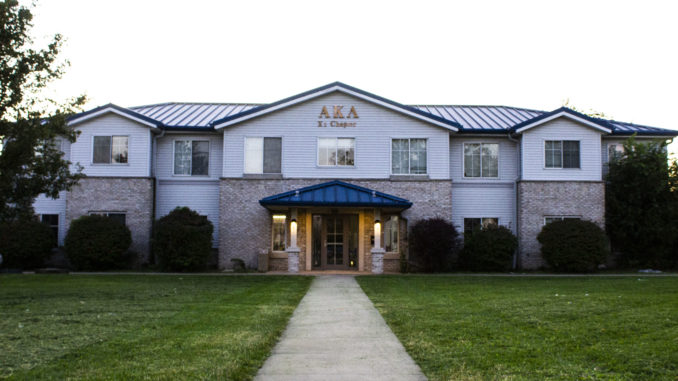
The lawsuit against Truman State University, the Alpha Kappa Lambda fraternity and former student and fraternity member Brandon Grossheim is moving forward with a motion hearing scheduled for Monday, Oct. 21.
The lawsuit, filed July 31, is a wrongful death suit from the parents of two students who committed suicide in the 2016-17 school year. The lawsuit claims Grossheim was close to all five people who committed suicide in that school year and was either the last person to see them alive or the first to find their body. The parents’ attorney, Nicole Gorovsky, has also accused the University of failing to be transparent about the alleged psychological manipulation occuring.
University General Counsel Warren Wells, AKL’s attorney Mark Wasinger and Grossheim’s attorney Benjamin Gray have each filed a motion to dismiss the case. Steve Smith, professor of business administration and a former practicing attorney, said the motions to dismiss seem to be standard practice.
“There’s nothing even very significant about [the motions to dismiss] at all,” Smith said. “That happens all the time. Even if you think there’s a good reason to dismiss or if you think there’s not a snowball’s chance in hell of getting it dismissed you’ll file a motion to dismiss, probably.”
Smith said the case looks to be fairly routine in its preliminary phase thus far and seems to be on a usual timeline.
Marty Jayne, professor emeritus of justice systems with a law degree, was the interfraternity council advisor in 2016-17 when the multiple suicides occurred. Jayne said he didn’t have a lot of knowledge about what was going on in relation to students’ mental health at the time because the University isn’t allowed to release personal health records of students, however, he said he was aware of increased efforts by Truman to support the men in AKL.
Gorovsky originally sued the Truman State University Foundation, which collects funds for the University, but after the foundation filed a motion stating it was the wrong party, the plaintiffs’ attorney amended the suit to sue the University itself.
“What I haven’t seen yet — and I’m waiting to see if it’s there — is any allegation in their petition about why sovereign immunity does not apply,” Jayne said. “If you sue the government, you’ve got to have an exception to the basic rule that the government can’t be sued, and there wasn’t any allegation of that in the original.”
Truman’s motion to dismiss first suggests that the University cannot be sued because of sovereign immunity, and the premise liability doesn’t apply because Truman doesn’t own the fraternity house. The motion states that Truman cannot be liable for when people commit criminal acts on its campus, only when the University or physical campus property create an issue.
AKL’s motion to dismiss suggests that because the incidents occurred in the local chapter house it does not mean that the national organization is responsible, Jayne said. The motion references the premises liability, but the lawsuit doesn’t allege that the national organization owns or operates the property. Additionally, the motion states that the lawsuit doesn’t present facts to indicate the national organization was aware of what Grossheim was allegedly doing and it doesn’t have a legal responsibility to supervise tenants or keep them safe.
In Grossheim’s motion to dismiss, the first point states that the former student wasn’t charged with anything and there’s nothing to indicate he is responsible. The motion also questions the lawsuit’s application of the negligence standard.
Jayne said if the case survives the motions to dismiss it will move to the discovery phase in which each side will attempt to learn what the other side knows and find evidence for their conclusions.
Wells declined to comment at this time. Gorovsky and Gray could not be reached as of Tuesday evening.
